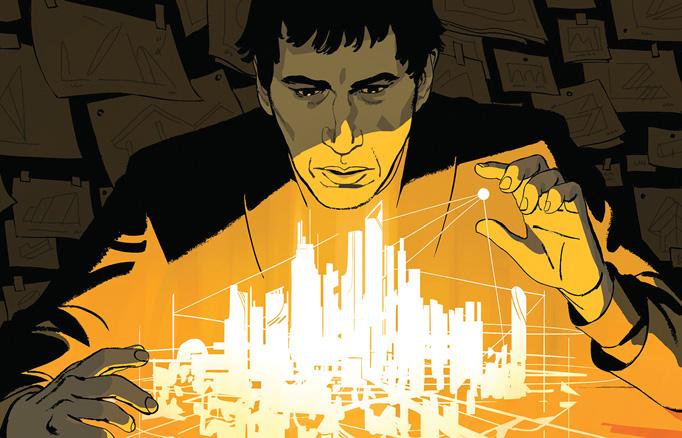
Adam Driver stars in Francis Ford Coppola’s film.
The subject of “Megalopolis,” Francis Ford Coppola’s first feature in thirteen years, is time. The movie begins with an image of a large city clock, and Coppola repeatedly invokes time’s relentless forward march. Yet the very nature of the movie, which is by turns aggressively heady, stubbornly illogical, and beguilingly optimistic, is to question our understanding of time as a finite resource. It muses about how we as people designers, builders, inventors, artists might succeed in circumventing time and bring about a utopia that resists the natural slide toward entropy.
Coppola's protagonist is a controversial architect and designer named Cesar Catilina (Adam Driver), who has the ability to pause time. "Time, stop!" he says, and everything freezes: people, cars, the clouds in the sky, even the crumbling of a public-housing development that was being demolished on Cesar's own orders. But his supernatural powers are limited. Eventually, he must allow time to start up again, with a reluctant snap of his fingers. (The film is laden with references to Shakespeare, Emerson, and Sapphic poetry, but the temporal gimmickry reminded me, irresistibly, of the late-eighties sitcom “Out of This World.”)
This story is from the May 27, 2024 edition of The New Yorker.
Start your 7-day Magzter GOLD free trial to access thousands of curated premium stories, and 8,500+ magazines and newspapers.
Already a subscriber ? Sign In
This story is from the May 27, 2024 edition of The New Yorker.
Start your 7-day Magzter GOLD free trial to access thousands of curated premium stories, and 8,500+ magazines and newspapers.
Already a subscriber? Sign In

Age of Anxiety
The love songs of Billie Eilish.

A Reporter at Large – You Make Me Sick
How corporate scientists discovered—and then helped to conceal—the dangers of forever chemicals.

OLD ENGLISH
“Player Kings,”\"The Cherry Orchard,” and \"London Tide.”

THOROUGHLY MODERN
Yuja Wang uses her star power to lead audiences out of their comfort zones.

THE PERFECTIONIST
Why we're still catching up to Brancusi.

DESERT ISLAND
Tastes of Hawati abound in Las Vegas.

HIGHER AND HIGHER
To preserve humanity—and the planet—should we give up growth?

MAXED OUT
“Furiosa: A Mad Max Saga.”

WOMAN, FROG, AND DEVIL
January Wojnicz, a retired civil servant and a landowner, was a splendid man, as they said in Lwów, handsome and dignified.

THE STASI FILES
Piecing together the secrets of East Germany’s past.